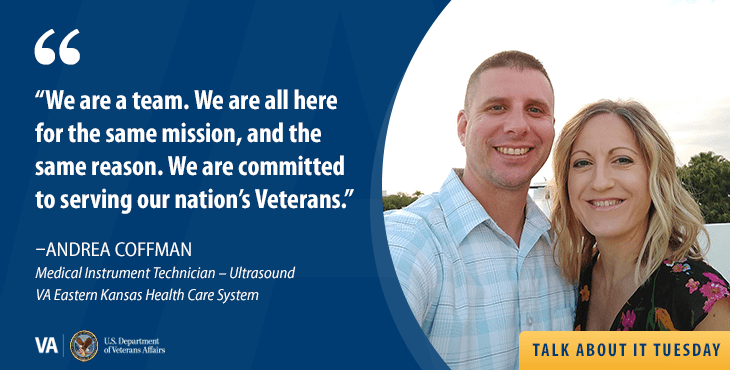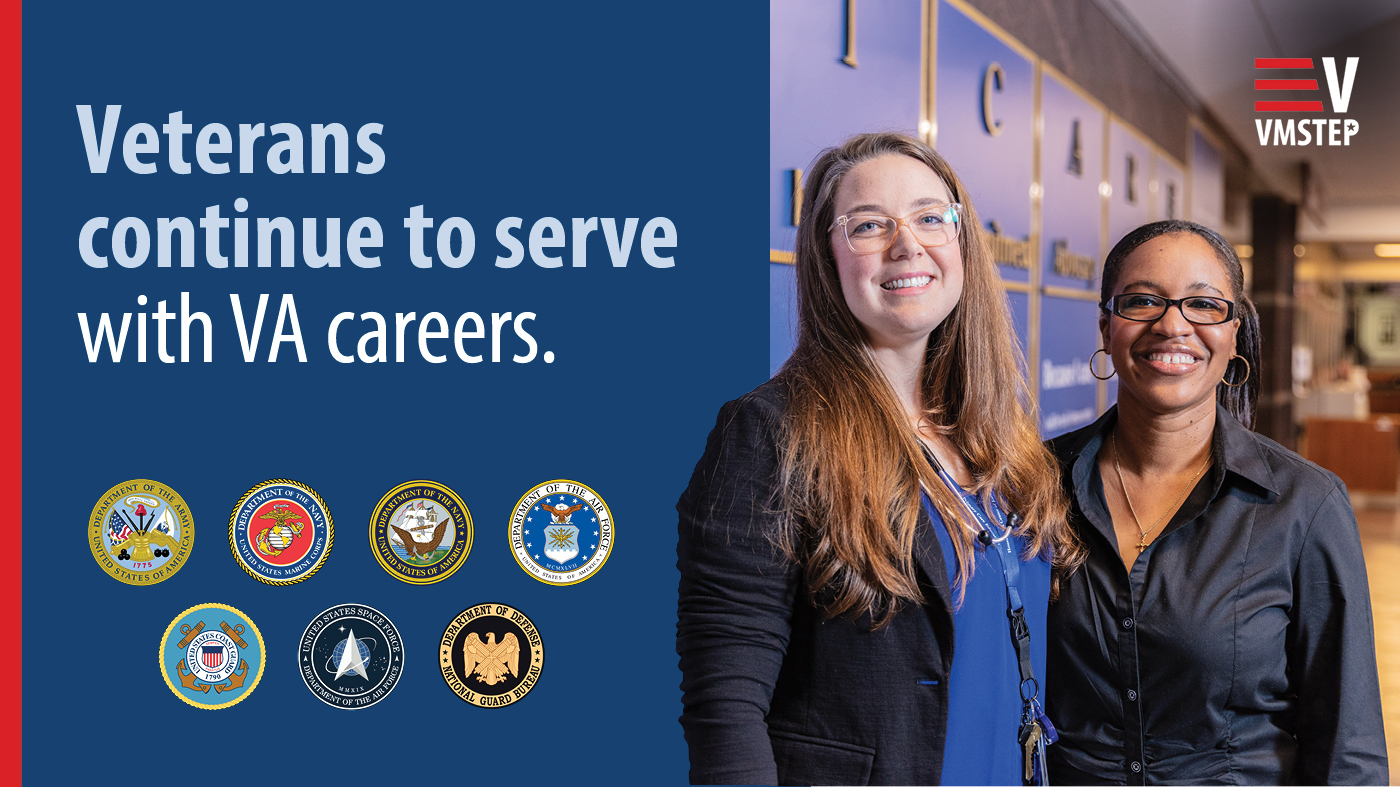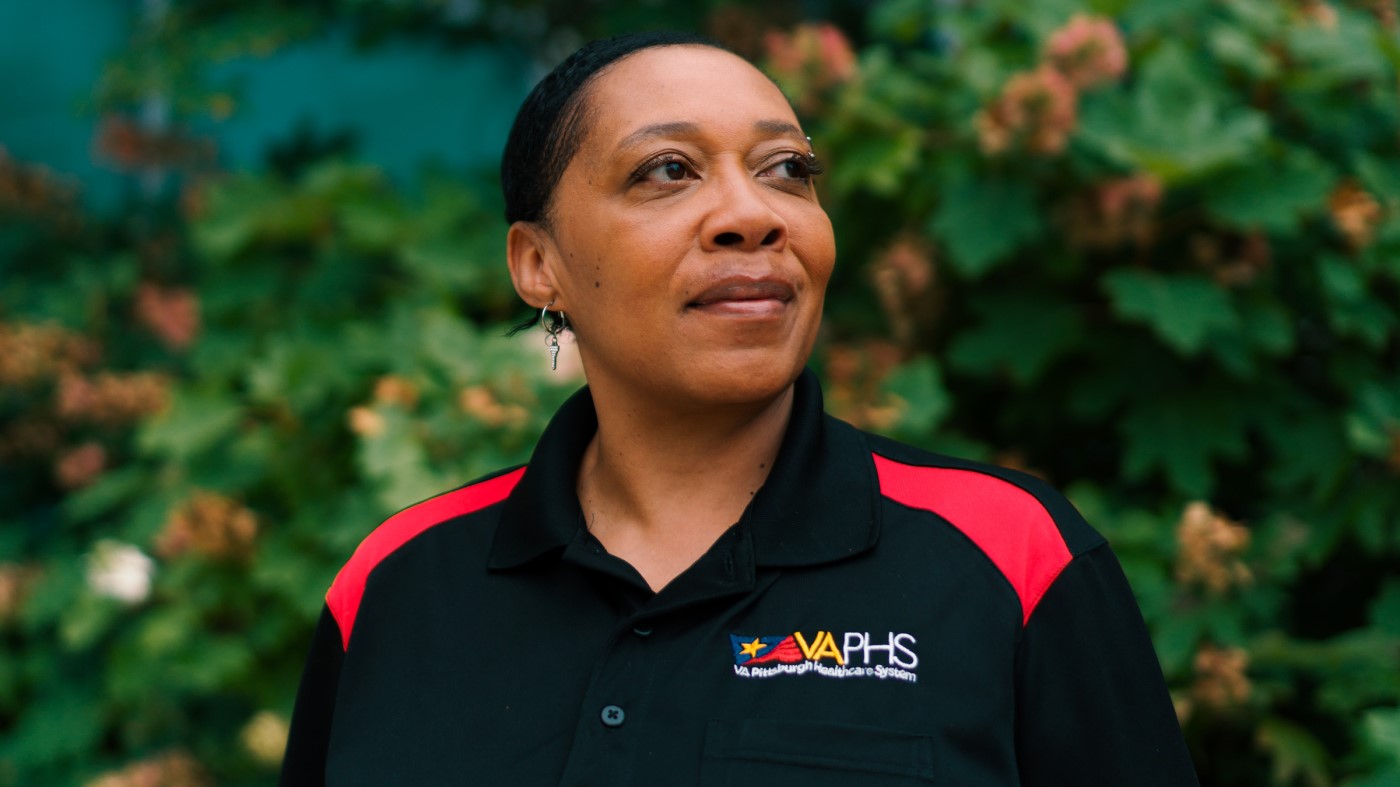It took just one rotation at a VA hospital for medical instrument technician Andrea Coffman to know she’d found the place for her.
“The Veterans were fantastic,” explained Coffman, an ultrasound technologist who works at VA Eastern Kansas Health Care System. “They were so positive. I just knew that VA was where I wanted to spend my career.”
Coffman, who has worked at VA for 13 years, recently visited with us during a special “Talk About It Tuesday” segment to discuss her career and what it takes to become a medical instrument technician at VA. This weekly career broadcast airs live on LinkedIn each Tuesday at noon ET.
The role of a medical instrument technician
With a specialty in ultrasound technology, Coffman uses ultrasound to take diagnostic images of internal anatomy. For Veterans, ultrasound not only reduces exposure to radiation but there’s no danger of disturbing metal that may be inside the body.
“The information that an ultrasound is able to provide to a physician is critical to make a diagnosis,” Coffman said.
Beyond ultrasound work, there are many other types of medical instrument technicians that work at VA. Coffman highlighted the work of echocardiography, which images the heart; the work done in gastrointestinal clinics and dialysis clinics; and even the technicians who monitor equipment for sleep studies.
The right path
To become a medical instrument technician, said Coffman, the first step is to graduate from an accredited technical school or university, where you should develop a strong knowledge of anatomy and physiology, as well as some physics and pharmacology. Beyond graduation, you’ll need to secure a certification or registry in your chosen field of expertise.
“It shows the patient and the employer that [you’re] dedicated to providing the best quality care at the highest standards in [your] field,” she said.
While you may choose to work at the clinical level throughout your career, there are options for greater responsibility at VA. There are lead medical instrument technicians who supervise two or three other employees while supervisory medical instrument technicians may lead an entire department.
“These options may open doors to other career advancement outside the field, but within VA,” she added.
The power of people
For Coffman, what truly sets VA apart from anywhere else is the people. Working with Veterans, she said, is both an honor and a privilege. Combined with her colleagues in VA, that has made all the difference.
“We are a team. We are all here for the same mission, and the same reason,” she said. “We are committed to serving our nation’s Veterans.”
Work at VA
Whether you’re a new graduate or an experienced professional, there’s room to grow your career as a medical instrument technologist at VA.
- WATCH Andrea Coffman’s Q&A.
- EXPLORE career opportunities at VA.
- LEARN about the benefits of a VA career.
- CATCH us on “Talk About It Tuesday.”
Topics in this story
More Stories
For Veterans, the mission does not end when the uniform comes off. VA careers offer opportunities to serve while building fulfilling civilian careers.
Whether it’s access to the great outdoors or a calmer pace in your everyday life, you can find it in rural VA communities around the country.
If you’re looking for an opportunity to provide care to Veterans outside a traditional clinical setting, Home Based Primary Care (HBPC) is a great option.







Yeah, i wish I had a career but the VA destroyed my career with long wait times for care. Its been over five years now and I can’t take anymore. My medical problems seem to be unimportant to the VA. In pain and nothing left to live for. Way to go VA!!!